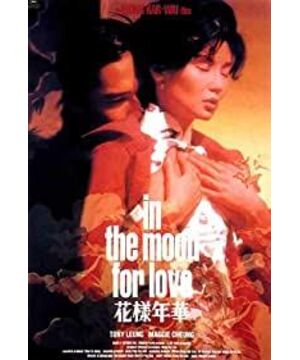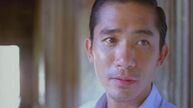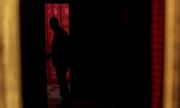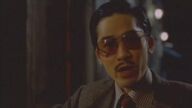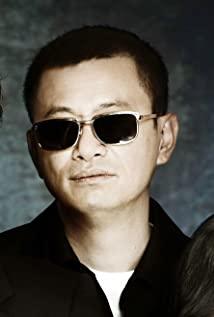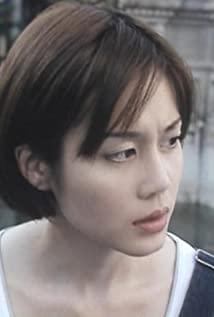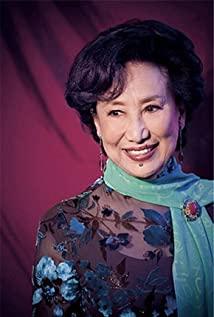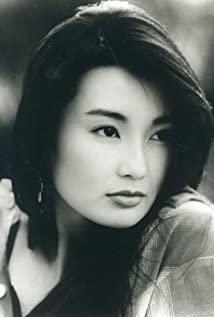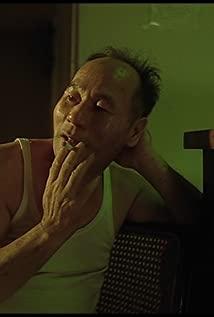Written in the front : The general structure of this film review is a Close-Scene-Analysis + a discussion: the analysis section starts from the behind-the-scenes scene of Su Lizhen leaving the hotel room rented by Zhou Muyun for the first time, to the first rehearsal between Su Lizhen and her husband. Before the confrontation ends, the focus is to analyze how the two people’s eroticism in this passage is presented in a “restrained” and subjective way. The discussion section focuses on excerpts versus end-credits news, in particular how news conveys information to viewers in an opposite way, and what the news (likely) carries. This article was originally my homework for a basic film class this semester. [The writing is actually quite general,] but I still smirked and edited it and posted it to fill in the number? The original text is in English, and some proper nouns are kept in English because I don't know their Chinese counterparts. Without further ado, let's get straight to the point.
【Close-Scene-Analysis】
In the excerpts I have selected, the music, scene construction & colors, actors' behaviors, and camera language all use a "restrained" (non-verbal + non-physical) way to show Su and Tuesday's pervasive eroticism, and at the same time Construct a subjective space that reflects this eroticism. The music part is best understood. Mei Linmao’s music starts from Su Lizhen’s walk in the corridor and runs through the entire passage. The soft music is used to render the lyrical tone of this passage. At the same time, it begins to guide the audience to make a specific interpretation of the behavior of the characters in the space of the scene. . The red wallpaper, curtains, lights and other props have dipped into the space again, and built an expressive mise-en-scène with red as the main tone, so that the lust between the two can be visualized through colors and scenes. These elements give a new layer of meaning to the actions of the two actors in this space. Zhou and Su were originally working together to create a martial arts novel. In this specific environment, this joint creation replaced the behavior of limbs and became a symbol of copulation and reproduction. [Su Lizhen has a son named "Yongsheng" at the end of the film. Some people interpret this name as "Jin Yong + Liang Yusheng", which is a commemoration of Su Lizhen's writing martial arts novels with Zhou Muyun. I tend to interpret this name as "born of Jin Yong", and Jin Yong here naturally refers to Zhou Muyun, who was a writer of martial arts novels. That child was also born after she and Zhou Muyun had actual physical intercourse before parting. , but the time for the two to blend in spiritually and emotionally was much earlier. ] The camera movement has also become a tool to reflect the subjective eroticism of the two in this scene. In this scene, there are many slow panning shots back and forth between the two, which can be interpreted as the projection of the two's thoughts back and forth, and the object of this projection is the other. Therefore, without using a line or showing any explicit physical behavior, the eroticism between the two can be presented to the audience in a "restrained" way. In addition, the duo's emotions directly affect their surroundings, and even the movement of the cameras used to film them, which lends a subjective color to this presentation.
But this subjectivity does not stop there. The subjectivity of the above analysis is only a timely projection of the subjective emotions of the two people in the scene. However, the camera position & composition and the ambiguous point of view actually hint at another meta-level of narrative. A timeless, retrospective subjectivity. Here we are asked to (over)interpret a passage at the end of the credits.
This passage mentioned that Zhou Muyun still cherished the past, but when he recalled it, he always felt out of reach. In fact, in some of the passages I have selected, some of the shots create this kind of atmosphere that is both hopeful and unreachable. For example, in the two shots below, the director deliberately set up obstacles in the foreground to prevent the audience from peeping at the characters' behavior.
This move has two purposes: the first is to create a sense of distance between the camera’s viewpoint and the events in the scene, so as to describe the state of “hopeful and unreachable”; the second is to remind the audience of the non-objectivity of the camera, [an objective If the camera has the opportunity to give the viewer as much information as possible, it may take a more omniscient perspective, such as for an establishing shot, suggesting that a non-omniscient viewer in this foregrounded shot gives the These ambiguous shots are a possible subjectivity. In fact, such a scene has appeared in the movie more than once. For example, when Zhou Su and the two had to hide in Zhou's room due to the early return of the landlord, the camera also gave a scene like a peeper's point of view. Both the foreground and the lower camera position strongly suggest the subject behind the camera's point of view and the subjective perspective he carries.
As for who is the subject peeping from behind the camera, combined with the words at the end of the film, we can recognize him as Zhou Muyun himself, and these shots can be interpreted as a retrospective of his past. Therefore, the subjectivity in the excerpts is not only a timely reflection of the emotions of the two people in the scene, but also a characteristic that Zhou Muyun must carry when he recalls the past.
【Discuss】
The reason why the director uses this "restrained" and subjective expression is that I understand it is intended to contrast with the almost abruptly inserted news report at the end of the film. The purpose of that news report has been debated. I remember Maggie Cheung's interpretation when responding to a reporter's question at the Toronto Film Festival: "The director wants to let the audience understand that there is a bigger world outside of Zhou Su's two-person world (to the effect, welcome corrections if you find the specific original text)." Wong Kar-wai's own explanation is that "inserting political events into a fictional story can increase the authenticity of the story (to the effect, corrections are welcome if you find the specific original text)." Others believe that the news did not carry any special meaning at all. . In my opinion, that news has at least two purposes, one is to create a method of expression that is opposed to the previous film, and the other is to introduce a theme about the narrative of colonial history. Let’s talk about the second point first. General Charles de Gaulle’s visit to Cambodia in 1966 has always been regarded as an important event in the latter’s early decolonization process [1], and in 2000, when “In the Mood for Love” was released, Hong Kong had just begun its decolonization process. . The similarity in the status of the two former colonies makes me feel that Cambodia is actually a reference to Hong Kong at the turn of the century. [So here I object to a reading that sees 1966 as the real historical time. Many believe that Wong Kar-wai chose Hong Kong in 1966 to allude to the June 7 riots that occurred the following year and the Cultural Revolution that began at the same time in the mainland. However, such interpretations are just scratching the surface. At first glance, it seems to increase some space for textual discussion, but in fact, no in-depth discussion can be excavated from this interpretation. Conversely, looking at Cambodia in 1966 as Hong Kong in 2000 may lead to some more interesting discussions (which I will discuss below). In addition to adding to the discussion, there are two reasons why I think it is feasible to see Cambodia as a reference to Hong Kong. 1. The behavior of some Hong Kong people in 1966 can be explained in the context of 2000. For example, Su Lizhen's landlord thought that Hong Kong was too chaotic at the time and wanted to emigrate to foreign countries. Before and after Hong Kong's return, many Hong Kongers also immigrated to the Commonwealth of Nations [2~3]. Second, from the perspective of the director's life, Hong Kong in 2000 is also a more reasonable assumption than Hong Kong in 1966. In the film, Wong Kar-wai borrows Zhou Muyun's mouth to miss the old days of Hong Kong, but from 1960 to 1966, he was not even 10 years old. How could he miss an era when he may not have any impression at all? On the other hand, most of his young and middle-aged years were spent in Hong Kong in the ten years before the handover, and it makes more sense for him to miss Hong Kong in such a period. So I tend to put the Cambodian in that news Cambodia is regarded as a reference to Hong Kong after the reunification, and the old era that is missed in the film refers to Hong Kong in the ten years before the handover. ] In addition, the content of that news is France's unilateral portrayal of Franco-Cambodian relations in the post-colonial era, [it uses "Prince... and Queen... come forward to greet," "a welcome unprecedented in the history of the kingdom," and other words to show the popularity of de Gaulle, but this kind of rhetoric has largely deprived Cambodian civilians of the narrative of this historical event, (the crowds welcoming people on both sides of the road should not be unfamiliar to the Chinese, we know that crowds are fundamental Can't represent the attitude of ordinary people,)] It is essentially the institutionalized history writing of a powerful nation against a former colony. In this context, the appearance of this news is to suggest that the film has a theme about the historical narrative angle. And the discussion of historical narrative leads us back to the contrast between this newscast and previous passages in the film (such as the ones I have excerpted from), which express at least two diametrically opposites. The first is that news is not restrained in the transmission of its information, and the concise language of expressing its intentions is almost the biggest characteristic of its propagandist nature, which is different from the way excerpts show but not tell. The second is that news always tries to maintain apparent objectivity, and after espousing a position and using leading words (such as the example mentioned above), it still wants to convince its audience that it is impartial in its broadcast. [Off-topic: What I am emphasizing here is the impartiality of the broadcast rather than the impartiality of the position. Many media rely on their clear positions to gain audiences, but even they still want their audiences to believe that the information they receive is fair, because the audience needs to believe that the information they have is fair, and then they will go further. I feel that my position is reasonable. ] This is in stark contrast to the extremely subjective expression in the excerpts. I mentioned earlier that we can view the subjectivity of the audiovisual language in In the Mood for Love as the result of one's recollection of the past. Therefore, from a broader perspective, the contrast between news and excerpts is actually the contrast between official historical narrative and private history writing (personal/private history writing).
Next, I want to talk about why the director wants to shape this historical narrative contrast, and why it has to be such a private historical narrative. The reason why the director wants to create such a contrast is very simple in my opinion. It is to emphasize that there is a historical narrative that belongs to ordinary people in Hong Kong apart from the official historical narrative. As I mentioned earlier, Cambodia in 1966 is actually a reference to Hong Kong at the turn of the century, that is, just entering the post-colonial era. That news shouldn't just be seen as France's official narrative of post-colonial Cambodia, but equally as the mainland's official narrative of post-colonial Hong Kong. [Some people may refute that the relationship between France and Cambodia is a former colonizer and a former colony, and the relationship between the mainland and Hong Kong is not like this. At most, that news can only be regarded as a British response to post-colonial Hong Kong. official narrative. But what France was really referring to in that piece of news was a powerful country that defined its own good relations with a region, and its own welcome in that area. It makes sense for you to apply this to the mainland. ] This kind of official narrative itself is not a problem, because history does not have an objective or omniscient recording angle, so any narrative has its authenticity and flaws, which should not affect the peaceful coexistence of different narratives. If any kind of narrative only slightly acknowledges its own limitations, then there will be no vicious disputes between different historical narratives. Official or private narratives are just a unique puzzle, and their coexistence can better restore the original appearance of history. . But in Hong Kong at the turn of the century, there were two difficulties with this coexistence, one technical (more important at the time) and one political (more secondary at the time). The technical difficulty refers to the limited means of recording left to ordinary people at the turn of the century, and the private narratives of ordinary people cannot have channels and audiences comparable to official narratives. This creates an imbalance in the spread and duration of the two narratives - the official narrative will be public and persistent, while the private narrative will always be limited and fleeting. Half a century later, people may still watch the news of Charles de Gaulle's visit to Cambodia when studying Cambodia's colonial history, but Zhou Muyun and Su Lizhen's more vivid and profound memories of the colonial period may pass with them. And no one ever knows and no one cares. [This is often overlooked by those who live in modern times and take for granted that private information can be widely distributed. ] The political difficulty refers to the fact that the mainland has interfered with historical narratives far removed from official narratives, and private historical narratives have thus been partially suppressed. 【But I personally think that this factor was a relatively minor factor at the time, and it has only become more important in recent years. 】Combining the above two reasons, the private narrative is absent from the historical narrative. Therefore, I think Wong Kar-wai has to build a private narrative that can exist in a wider space and a longer time by making such an extremely microscopic and personal film (its focus is so small that it is almost only two ordinary people) , to achieve the return of ordinary people to the private narrative of Hong Kong during the colonial period, and thus to preserve more history and perhaps a more realistic face.
At the end of this article, I would like to briefly discuss why private narratives have to be expressed in such a restrained way (such as why Wong Kar-wai doesn’t just shoot his nostalgia for pre-return colonial Hong Kong, but needs to go around “nostalgia for the past and hurt the present” ”). In fact, in addition to the non-verbal and non-physical aspects I mentioned above, the restraint in the film is also reflected in the persistence of Zhou and Su to maintain a certain bottom line. This obsession is driven by the pressure of social norms, and the result of its restraint is precisely because Zhou Su and two avoid social criticism. In fact, Wong Kar-wai, who made the film, was also faced with a kind of pressure from social good customs. In the Chinese context, this good custom is the specific attitude that a colonized person should have towards the history of colonization, and what he should have when telling the history of colonization. conscious position. A Chinese with a conscious position should never miss the colonial period, even if the object of his memory is not the colonial government that the official historical narrative focuses on, but only the specific ordinary people around him in that era. The symbolic commemoration of the British Hong Kong period has its own sensitivity in both the mainland and Hong Kong, and it is easy to cause controversy if one is not careful [4]. Under such circumstances, Wong Kar-wai had to adopt a more obscure way of commemoration, burying his emotions behind the image of the movie "In the Mood for Love", as if Zhou Muyun had kept his secret emotions in a city that passed away. among the remains.
Zhou Muyun's memory of Su Lizhen should have been buried in a tree hole made of steel and concrete like any love that never ends in this city, and then became blurred by the cheers and sighs of the times. But this memory has been hidden in the eternity of twenty-four frames, and it has become an immortal annual ring carved in time. The bustling palace may only be left with broken walls, and the noisy city will also be turned into a silent relic, but I believe that at the end of time, one person's memory of another person will always echo.
Written later : At the end of this film review, I felt more and more that it was a waste of time, so I chose to make a hasty conclusion. I believe that many people after reading this article (if anyone can read all of Rory's rambling) must be thinking, why should a political interpretation that will be untenable after careful scrutiny is forced into a tear-jerking love What about the story? Well, I don't have any good reasons, my only defense may be as I said in the text, we need different narratives to restore the original appearance of something, this is true for history, and maybe it is also for a film with multiple meanings in this way. Anyway, let my grotesque review be the weird side of this great movie!
Reference
【1】Falser, Michael. "Cultural heritage as performance: Re-enacting Angkorian grandeur in postcolonial Cambodia (1953–70)." In Cultures of decolonisation . Manchester University Press, 2016.
[2] Kobayashi, Audrey, Valerie Preston, and Ann Marie Murnaghan. "Place, affect, and transnationalism through the voices of Hong Kong immigrants to Canada." Social & Cultural Geography 12, no. 8 (2011): 871-888.
【3】Ley, David, and Audrey Kobayashi. "Back to Hong Kong: return migration or transnational sojourn?." Global networks 5, no. 2 (2005): 111-127.
【4】Ho, Glos. "Reconnecting Colonial Imagination?: Hong Kong People's Attitude Towards the London 2012 Olympics." The International Journal of the History of Sport 30, no. 18 (2013): 2209-2222.
View more about In the Mood for Love reviews


